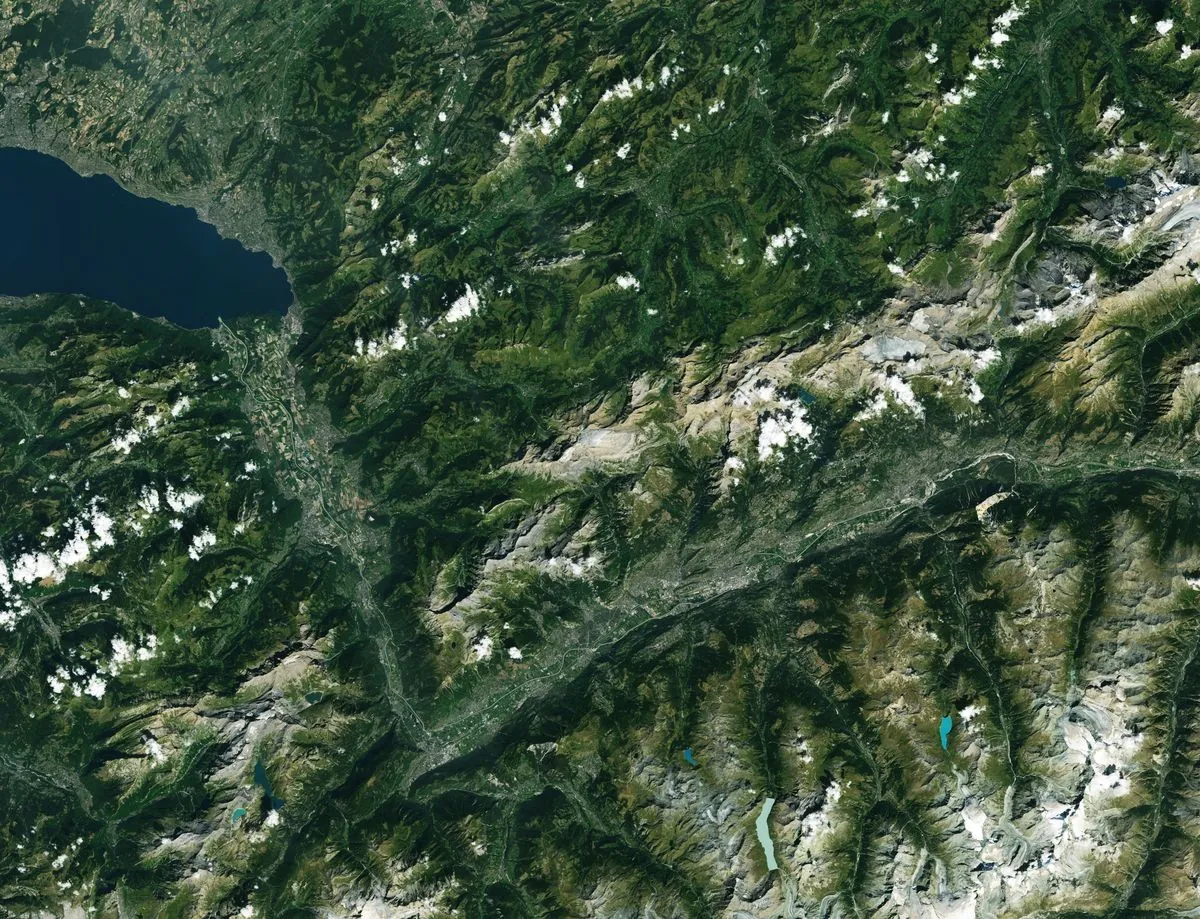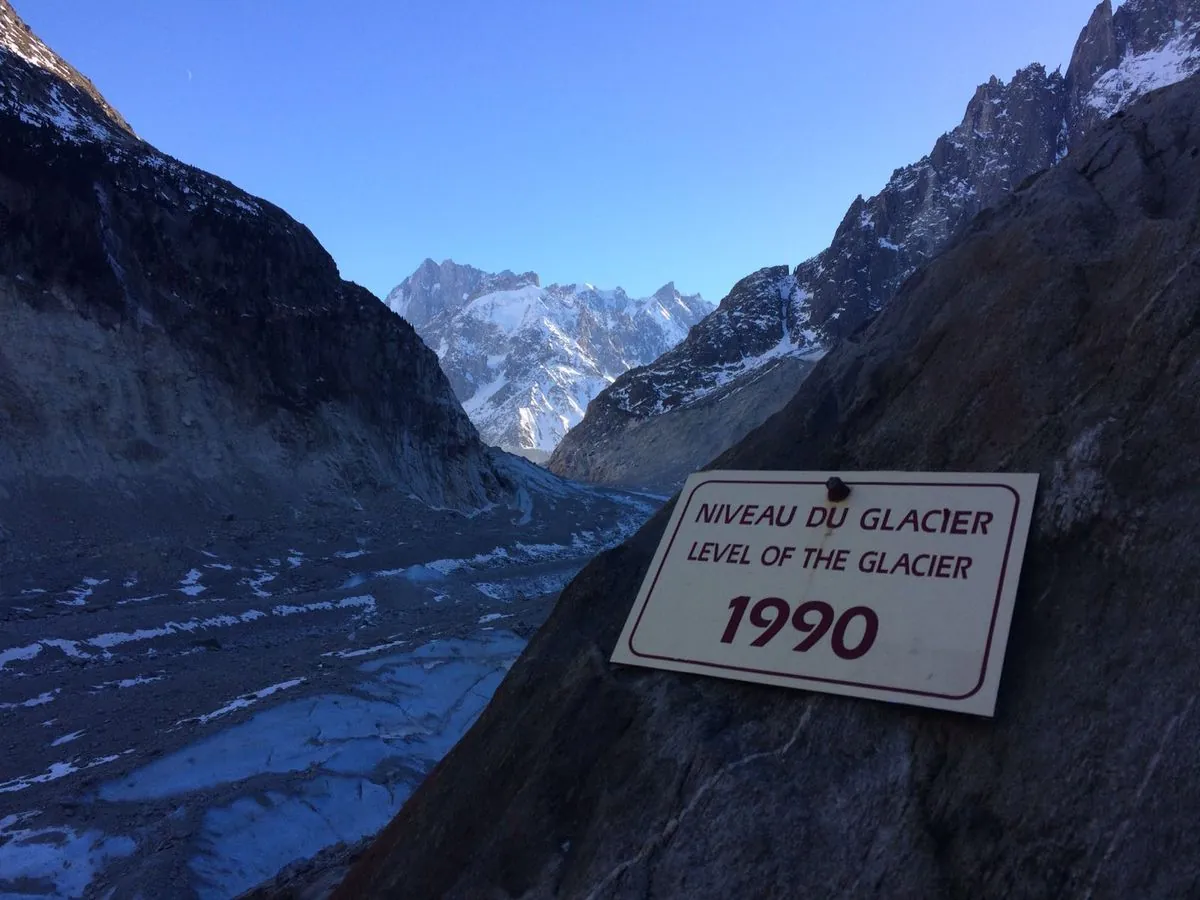Swiss Glaciers Shrink 2.5% in 2024, Continuing Alarming Trend
Swiss glaciers lost 2.5% of their volume in 2024 due to high temperatures and Saharan dust. This follows significant losses in previous years, highlighting the ongoing impact of climate change on Alpine ice.

Switzerland's glaciers continue to face significant challenges as climate change takes its toll on these iconic ice formations. According to a recent report by the Swiss Academy of Sciences, the country's glaciers experienced a 2.5% reduction in volume during the summer of 2024, despite initially favorable conditions.
Switzerland, home to over 1,400 glaciers, has been witnessing a concerning trend in glacier loss. These ice formations, which cover approximately 2.5% of the nation's territory, have lost more than half their volume since 1931. The latest data adds to the already substantial losses recorded in recent years, with a 4% decrease in 2023 and a 6% drop in 2022.
The Swiss Alps, formed about 45 million years ago, have been subject to scientific glacier studies since the 19th century. However, the rate of glacial retreat has accelerated significantly since the 1980s, with some glaciers expected to vanish entirely by 2050.

Several factors contributed to the recent ice loss:
- Elevated temperatures in July and August 2024
- Absence of fresh snowfall during these months
- Saharan dust deposition, enhancing heat absorption
GLAMOS (Glacier Monitoring in Switzerland) reported that over half of the monitored glaciers lost their snow cover completely during the summer. Notable measurement points, including Plaine Morte, Gries, and Silvretta, recorded melt rates exceeding one meter.
"August saw the greatest loss of ice recorded since measurements began."
This ongoing glacial retreat has far-reaching consequences. Swiss glaciers are crucial water sources for hydroelectric power and play a vital role in the country's water cycle. Their loss affects local ecosystems, biodiversity, and contributes to rising global sea levels.
The Swiss government has implemented various protective measures, recognizing the glaciers' importance. However, the melting of permafrost in the Alps is destabilizing mountain slopes, leading to more frequent rockfalls.
Interestingly, the retreat of glaciers is exposing artifacts from thousands of years ago, providing valuable insights into the region's history. Swiss scientists are employing advanced technologies, including drones, to monitor these changes closely.
As Switzerland's glaciers continue to melt faster than the global average, the country faces significant challenges. The Swiss Alps, which attract millions of tourists annually, may look drastically different in the coming decades. This ongoing situation serves as a stark reminder of the urgent need for global action to address climate change and its impacts on our planet's cryosphere.


































